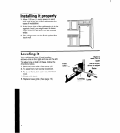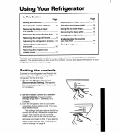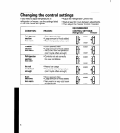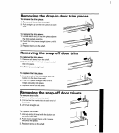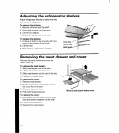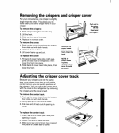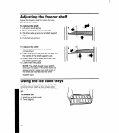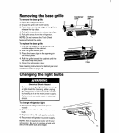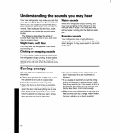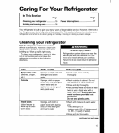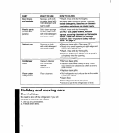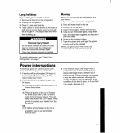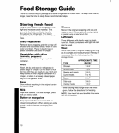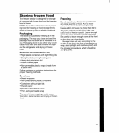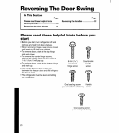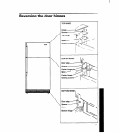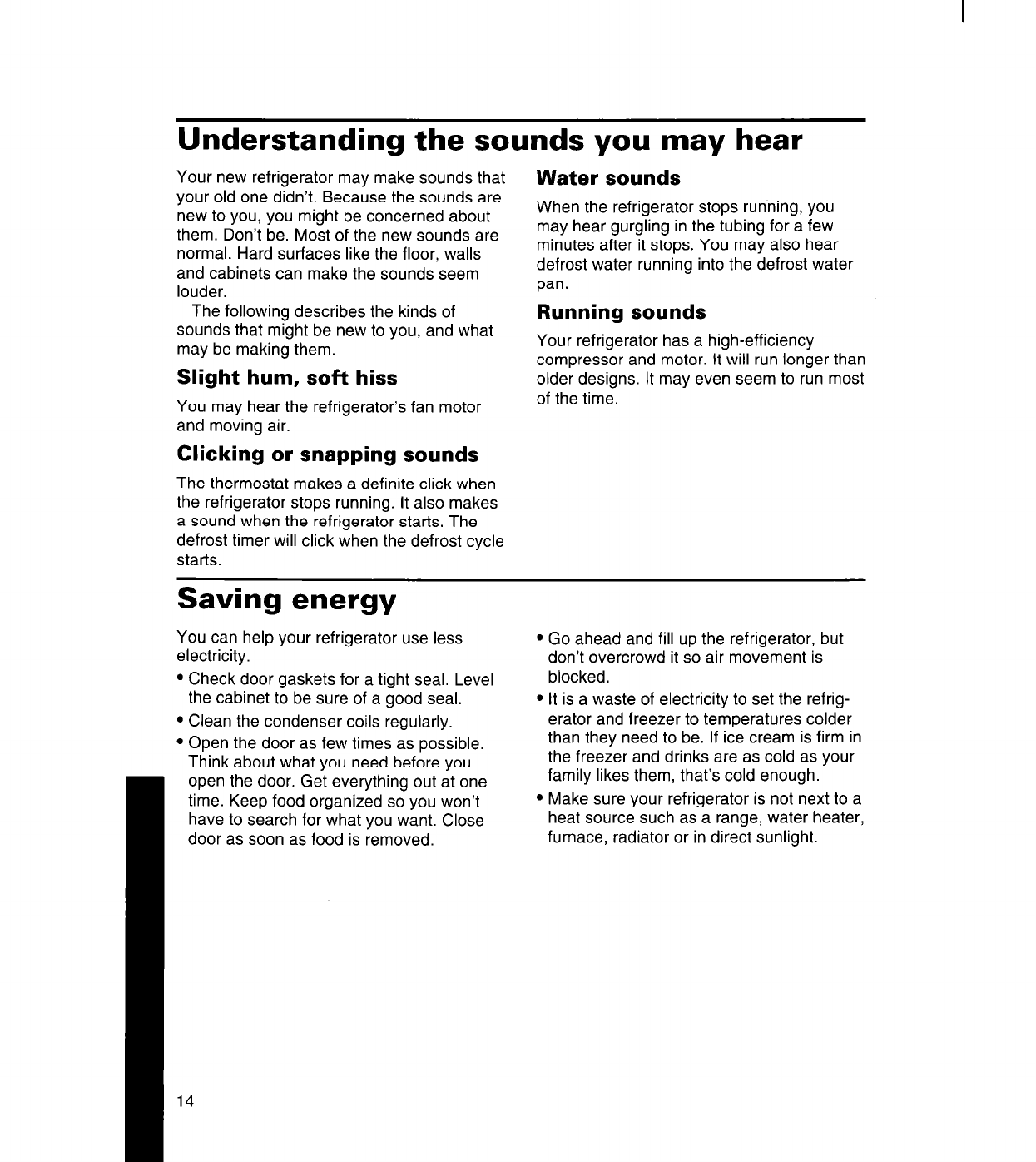
Understanding the sounds you may hear
Your new refrigerator may make sounds that
Water sounds
your old one didn’t. Because the sounds are
new to you, you might be concerned about
them. Don’t be. Most of the new sounds are
normal. Hard surfaces like the floor, walls
and cabinets can make the sounds seem
louder.
When the refrigerator stops running, you
may hear gurgling in the tubing for a few
minutes after it stops. You may also hear
defrost water running into the defrost water
pan.
The following describes the kinds of
sounds that might be new to you, and what
may be making them.
Slight hum, soft hiss
Running sounds
Your refrigerator has a high-efficiency
compressor and motor. It will run longer than
older designs. It may even seem to run most
-
You may hear the refrigerator’s fan motor
and moving air.
Clicking or snapping sounds
The thermostat makes a definite click when
the refrigerator stops running. It also makes
a sound when the refrigerator starts. The
defrost timer will click when the defrost cycle
starts.
of the time.
Saving energy
You can help your refrigerator use less
electricity.
l Check door gaskets for a tight seal. Level
the cabinet to be sure of a good seal.
l Clean the condenser coils regularly.
l Open the door as few times as possible.
Think about what you need before you
open the door. Get everything out at one
time. Keep food organized so you won’t
have to search for what you want. Close
door as soon as food is removed.
l Go ahead and fill up the refrigerator, but
don’t overcrowd it so air movement is
blocked.
l It is a waste of electricity to set the refrig-
erator and freezer to temperatures colder
than they need to be. If ice cream is firm in
the freezer and drinks are as cold as your
family likes them, that’s cold enough.
l Make sure your refrigerator is not next to a
heat source such as a range, water heater,
furnace, radiator or in direct sunlight.
14



